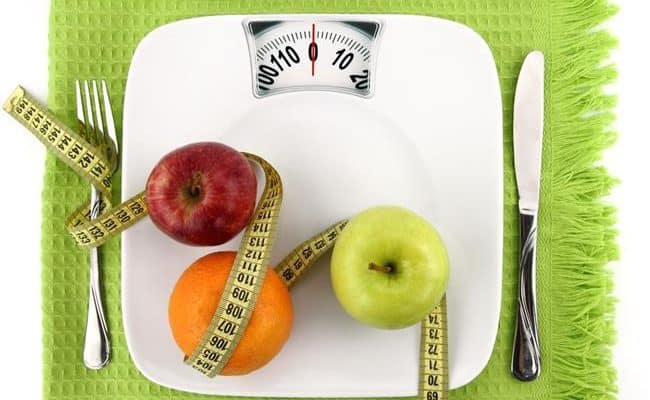
Grapefruit has many health benefits including being a rich source of vitamin C and many phytochemicals and antioxidants. The grapefruit diet has been popular for many years, but does grapefruit really help with weight loss? There is some research to suggest grapefruit may help with weight loss, but it can’t miraculously shed pounds.
There are also some contraindications to eating grapefruits or drinking grapefruit juice, so speak with a physician before eating grapefruits if you are on any medications. Here is a closer look at the relationship between grapefruits and weight loss.
The grapefruit diet
The grapefruit diet has been around since the 1930’s as an easy way to lose weight, but does it work?
The rationale for the diet is that there is compounds in grapefruits that can speed up fat loss. The diet has many variations to it, but for the most part it consists of eating grapefruit before every meal, cutting back on sugar and other foods. The diet also advocates a very low calorie intake, sometimes as low as 800 calories.
The diet is meant to last for about 2 weeks and is sometimes advertised as a way to drop 10 pounds quickly. While certain compounds may help increase fat burn, suggesting following the grapefruit diet can help you lose 10 pounds on about 10 days is a stretch. The best equation for weight loss is still exercise and a healthy over all diet.
Following a low calorie diet helps with weight loss, but cutting calorie intake under 1,000 calories per day is not recommended long term for most active people. Remember, any “fad” diet that is only suggested to last a few weeks for weight loss usually means the weight will come back on quickly.
Health benefits
One half of a grapefruit is about 50 calories, provides 2 gm of fiber, almost 200 mg of potassium and is a rich source of vitamin A and vitamin C. It also provides vitamin B6 in a smaller amount. Vitamins A and C act as antioxidants in the body and protect cells from damage. A diet rich in foods providing antioxidants, like grapefruit, may help lower the risk for chronic diseases such as heart disease and cancer.
Grapefruits are high in carotenoids, a pre-form of vitamin A, found in orange fruits and vegetables, and red grapefruits especially are high in the antioxidant lycopene which is found in red fruits and vegetables.
Heart health
A 2006 study in Journal of Agriculture and Food Chemistry analyzed the impact of eating grapefruit on blood triglyceride levels in people with high amounts of fat in the blood. Research participants either ate one blonde grapefruit, one red grapefruit per day or had no grapefruit for 30 days.
Researchers found after 30 days, study participants who had the red or blonde grapefruit every day had lower blood triglyceride levels compared to the control group. Participants who ate the red grapefruit had the lowest triglyceride levels, and red grapefruits had higher antioxidant function compared to the blonde grapefruit group.
This study suggests eating grapefruits may be beneficial for lowering blood cholesterol and triglycerides, with red grapefruit having more of an effect than blonde grapefruit on lowering triglycerides.
Weight loss
There is some research to suggest eating grapefruits may help with weight loss. A 2006 study from the Journal of Medicinal Food studied the effect of eating grapefruit, drinking grapefruit juice, taking grapefruit supplements compared to groups drinking apple juice or taking a placebo. Researchers found all of the grapefruit groups lost weight, and the group that ate the grapefruit daily had the most significant weight loss.
Researchers also found insulin resistance, which can lead to type 2 diabetes, was significantly lowered in the fresh grapefruit group.
However, a 2011 study from Nutrition and Metabolism found there was no difference in weight loss in obese study participants who either ate grapefruit, drank grapefruit juice or drank water before meals for 12 weeks. All groups lost weight during the twelve weeks, but there wasn’t a significant difference between the grapefruit groups and the water group.
Grapefruit may have compounds in it that can help increase fat burn; more research needs to be done. However, it may be the effect of eating or drinking a low calorie pre-load while on a reduced calorie diet that can help with weight loss. It may not be specific to a grapefruit, but eating or drinking anything low in calories and high in water may help with weight loss.
Caution
Grapefruits have many positive health benefits, and in addition to possibly assisting with weight loss may help lower blood lipids. However, if you are on any medication check with a health professional if eating grapefruits or drinking grapefruit juice is safe.
There are many interactions with grapefruit and medications, including heart health medications.
Conclusion
Some research suggests eating a grapefruit before meals may help with weight loss and could improve insulin sensitivity in some people. However, the almost the same weight loss results occurred when people were given water to drink before meals instead of grapefruits.
The grapefruit diet could help someone lose weight short term, but it is primarily because the diet is low in calories. Grapefruits are high in antioxidants, which provide many health benefits including lowering risk for some chronic diseases. However, if you’re on medication, check with your doctor before eating grapefruits, drinking grapefruit juice or taking grapefruit supplements.
References used in this article










